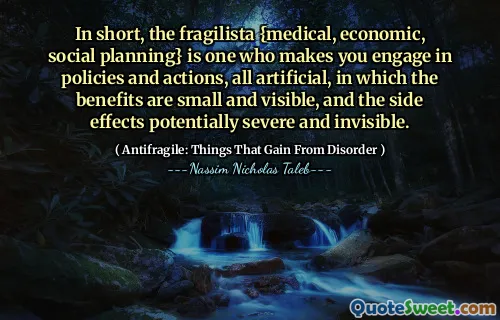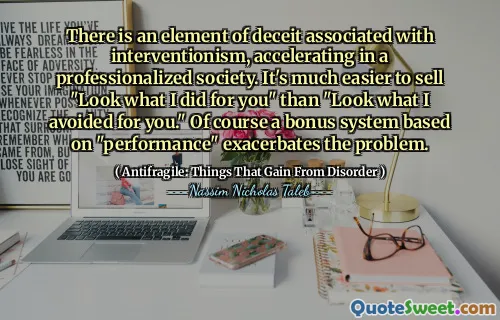"Antifragile: Things That Gain From Disorder," authored by Nassim Nicholas Taleb, introduces the concept of antifragility, which describes systems or entities that not only withstand chaos and uncertainty but actually benefit from it. Taleb distinguishes between fragile, robust, and antifragile things. While fragile things break under stress and robust ones endure it, antifragile elements improve and thrive in adverse conditions. This idea has broad implications across various fields, including economics, medicine, and personal development.
The book emphasizes the importance of embracing randomness and volatility rather than shying away from it. Taleb argues that many established systems are overly reliant on predictability and do not account for unforeseen events, ultimately leading to fragility. By designing systems to be antifragile, individuals and organizations can foster resilience and adaptability, thereby turning potential setbacks into opportunities for growth.
Through anecdotes, philosophical insights, and practical applications, Taleb illustrates how to navigate an unpredictable world effectively. Key strategies include decentralization, learning from failure, and recognizing the limits of knowledge. By applying these principles, readers can cultivate antifragile mindsets and approaches, enabling them to thrive amid uncertainty and complexity.
More »
Today Birthdays
1955 -
Max Lucado
1946 -
John Piper
1842 -
William James
1907 -
Abraham Joshua Heschel
1887 -
Aldo Leopold
1755 -
Alexander Hamilton
1976 -
Alethea Kontis
1971 -
Mary J. Blige
1825 -
Bayard Taylor
1943 -
Jim Hightower
1885 -
Alice Paul
1923 -
Carroll Shelby
1928 -
David L. Wolper
1954 -
Kailash Satyarthi
1972 -
Amanda Peet
1946 -
Naomi Judd
1970 -
Malcolm D. Lee
1955 -
Christian Marclay
1973 -
Rahul Dravid
1987 -
Jamie Vardy
1942 -
Clarence Clemons
1992 -
Fatima Sana Shaikh
1948 -
Larry Harvey
1930 -
Rod Taylor




